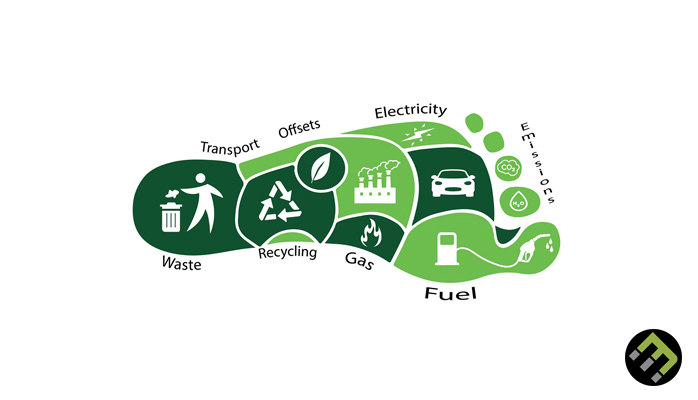
Nikkei's annual Future of Asia conference, held in Tokyo last week, brought together insights on various issues facing the region.
In addition to keynote speeches by the region's top leaders, including Malaysian Prime Minister Anwar Ibrahim and Thai Prime Minister Sretta Thavisin, experts from business, politics and academia discussed key challenges facing the region, from cutting carbon emissions to digital transformation to regional cooperation.
Here are three takeaways from the panel discussions during the two-day conference.
Balancing economic growth and decarbonization
One of the major themes during the panel sessions was the difficulty of reducing environmental impact while maintaining economic growth.
According to the International Energy Agency, the share of coal-fired power generation was 56.8% of all electricity generation in the Asia-Pacific region in 2021, showing that the region is still heavily reliant on coal.
"If there's a group of population that don't have access to energy, the coal power plant is the only solution to help these people get access to energy," said Chea Serey, governor of the National Bank of Cambodia. "You need energy [and] you need electricity [to develop a digital economy]. And to do that, you have to have balance, and this is where the challenge really comes."
Tetsuya Watanabe, the president of the Economic Research Institute for ASEAN and East Asia (ERIA), expressed that the challenges in ASEAN differ from those in developed economies even though achieving net-zero emission is a global common goal. "ASEAN countries need to continue to grow. So energy demand will also grow. ... That's inevitable."
Zafrul Aziz, the Malaysian minister of investment, trade and industry, pointed out that consumers and small businesses in Southeast Asia might not be able to bear the cost of transitioning to cleaner energy or using recycled materials for consumer goods. "The less developed countries will not have the ability to bear the costs."
The minister acknowledged that a carbon tax is a likely solution, as its revenue can be allocated to subsidizing or incentivizing companies to invest in the transition technology, to make those products more accessible.
From the industry side, Akimoto Uchikawa, CEO of Japanese materials maker Teijin, said that Asian manufacturers will have to "go through another wave of innovation" to achieve a circular economy, as it becomes more challenging to exacerbate natural resources in fear of environmental impact. For example, he said, "the durability of a product has to be 1.5 times or (even) four times better, or otherwise, we will not be able to fulfill the desires of the increasing population."
Talent shortage, regulatory hurdles loom over digital growth
Kao Kim Hourn, the secretary general of the Association of Southeast Asian Nations, highlighted the potential of the digital economy, pointing to the more than 440 million internet users in the region. He called the region "a growing, vibrant community using the internet."
Sutapa Amornvivat, founding CEO of Thai fintech company Abacus Digital, said, "The people [in ASEAN] are quite receptive to new technologies when we see in light of the COVID-19 pandemic that a lot of older generations are adopting the digital services very fast."
However, she pointed out some challenges facing the region's digital economy. "The fragmented and inconsistent regulations across countries certainly make it prohivitive for companies to expand cross-border," Sutapa said.
Sutapa also explained the shortage of skilled workers in the digital industry. "More collaboration on skilled worker[s'] transfer and a share of knowledge will be crucial to ASEAN as a powerhouse in the digital front."
ASEAN's Kao also admitted that "we need to continue to invest in skill development, digital skills across the entire region."
The education sector is still trying to figure out how to handle advanced digital technologies. Romyen Kosaikanont, Center Director at Southeast Asian Ministers of Education Organization Regional Centre for Higher Education and Development, said that to fully utilize advanced technology such as generative AI or virtual reality in education, setting clear objectives on why that technology is essential.
Regional cooperation becoming more critical
On the diplomatic front, experts in the panel discussions pointed out the growing importance of multilateral cooperation in areas such as security and economy as geopolitical tensions and uncertainties simmer.
Sue Mi Terry, Senior Fellow at the Council on Foreign Relations, said she sees the U.S.-South Korea-Japan trilateral relationship as "a permanent part of the security architecture in East Asia" amid the threat of China's military activities and North Korea's continuous missile launches in East Asia.
Jin Chang-soo, Director of the Center for Japanese Studies at South Korea's Sejong Institute, stated the importance of strengthening the trilateral support for emerging countries in key areas such as supply chain, digital and energy policies, given that "China has been very active" in providing assistance for these countries.
Meanwhile, there were also opinions that South Korea and Japan should deepen bilateral cooperation under current administrations.
Park Cheol-hee, Chancellor of the Korea National Diplomatic Academy, said, "Under [South Korean President] Yoon's administration, there was a big change in foreign policy visibly to Japan" in facing geopolitical issues in the region. "I'm not suggesting that we should forget about historical issues [between the two neighbors], but we will focus on the future to try developing the common future."
Business leaders also called for greater economic cooperation between South Korea and Japan.
Chey Tae-won, chairman of South Korean conglomerate SK Group, said the two countries have an opportunity to create a bigger market that follows its own set of rules, with the ultimate aim being to create an Asia economic zone like the European Union. "We have to accelerate integrating Asian markets," he said.
Takeshi Niinami, CEO of Japanese beverage maker Suntory Holdings, said developing an Asian economic zone would be a way to tap into a larger market. He said the Comprehensive and Progressive Agreement for Trans-Pacific Partnership (CPTPP), a multilateral economic framework to which Japan belongs, could become the "economic engine of Asia."
Source:Nikkei
Share: